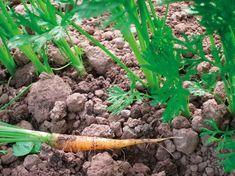
Potentially it’s the astrological sowing calendar or the burying of manure-filled cow horns that has led to biodynamic farming being dismissed as a crank method for people who wear tie-dye and sandals.
However, this was often the reaction the organic movement faced and now all the supermarkets sell the produce, with the likes of Sainsbury’s placing it alongside conventionally farmed food.
With biodynamic produce gaining high-profile fans in Monty Don and Nigel Slater, as well as flourishing on stalls in London’s Spa Terminus, where the Welsh producers Fern Verrow are leading the charge, and at Neal’s Yard, is it time the industry started to take the practice more seriously?
Biodynamic methods are based on the lectures Rudolf Steiner gave to a group of farmers in 1924. Steiner believed the farm was an organism and should be viewed holistically, integrating crops and livestock, the soil, recycling and the relationship between the farmer and the workers to the land. In 1928, a certification programme called Demeter was established for biodynamically grown foods.
Since then the movement has grown and according to the Journal of Social and Development Sciences, as of 2011 biodynamic techniques were used on 142,482 hectares in 47 countries, with Germany accounting for 45.1 per cent of the global total.
The Biodynamic Association’s chairman, Peter Brown, believes that if consumers were more aware of biodynamic produce they would be asking supermarkets to stock it.
“Who would have thought 10 years ago that organic food would be in the mainstream?” says Brown, who also manages the 200-acre biodynamic Tablehurst Farm in East Sussex.
“There is a life force in the food that you do not get with conventional food. When people become more aware of it, they will want to buy it.”
Biodynamics promotes diversity within a farm, it is the complete opposite to a monoculture and the benefits of this are that the farm becomes a self-sufficient entity.
Caroline Drummond, chief executive of LEAF, says while some of the ideas would not work for large-scale commercial producers, the concept of diversification could provide an inspiration for future farming. “I think taking a holistic approach to a farm and promoting ecological harmony and crop diversification are worthy of looking further into,” she adds. “At this critical time producers need to use as many tools in the box as they can. At the moment we are too reliant on a handful of crops.”
Berni Coults is manager for the educational centre and biodynamic 100-acre farm Ruskin Mill. He says the more unconventional aspects of the method often put off people. “I take a very pragmatic approach to it, and so can other people,” he says.
“I would encourage farmers to first of all see their farm as a whole living organism, where one enterprise benefits another. For example, our cows may not be our most profitable, but the manure they provide turns up as profit in our vegetables. By having a number of different enterprises you are always going to have something that succeeds.”
Tarry Bolger, the Biodynamic Association’s certification manager, says that the preparations the movement uses are the key to enriching the soil, which creates such fantastic-tasting produce.
“When you eat a carrot grown biodynamically, it actually tastes of carrot,” he says. “That’s because it has a vitality to it. The idea is to build up the cell strength of the plant, which also helps it fight off disease and pests.”
Jonathan Scurlock, the NFU’s chief renewable energy adviser, says the organisation values all its members’ ideas on food. -